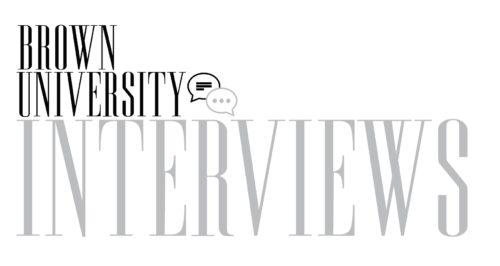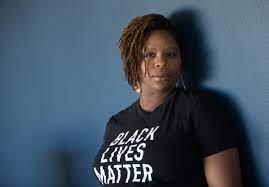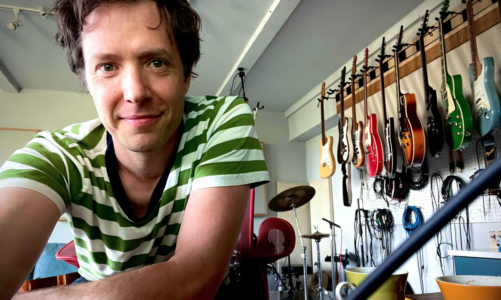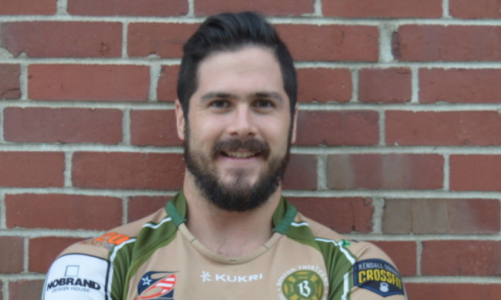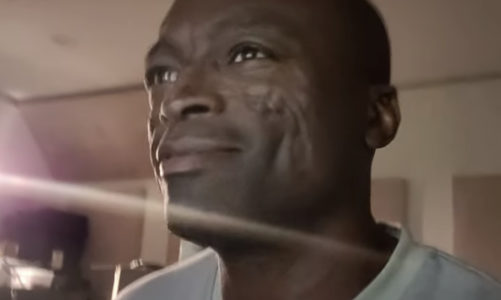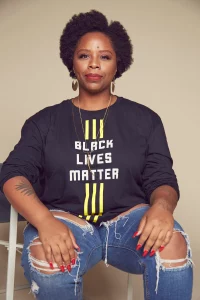
Patrisse Cullors is an artist-activist and co-founder of the Black Lives Matter movement. She was named one of Fortune’s World’s Greatest Leaders, Glamour Woman of the Year, and honored as an NAACP History Maker. Cullors is an organizer of the For Freedoms Congress (FFCon), along with artists Hank Willis Thomas and Eric Gottesman, which is hosted by the Hammer Museum, the Japanese American National Museum, and the Geffen Contemporary at MOCA. The three-day event is a first-of-its-kind convening of artists, academic and cultural institutions, and social justice organizations. Its objective—through a tightly curated series of artist-led planning sessions, creative workshops, and public events—is to build a collective strategy to supercharge civic engagement back in attendees’ local communities leading up to the 2020 presidential election.
Cullors, a Fulbright Scholar, recently completed her MFA at USC and now oversees the MFA program she founded in Social and Environmental Arts Practice at Prescott College in Arizona. Cullors is a fervent prison abolitionist and co-founder of the prison activism organization Dignity and Power Now. Her autobiography, When They Call you a Terrorist, is a New York Times bestseller, a New York Times editors’ pick, and was named one of TIME Magazine’s best memoirs of 2019. A version of this interview was originally published in the Brown Political Review.
Amelia Spalter: You’re a scholar of religion both academically and practically, holding a degree in Religion and Philosophy from UCLA and having been ordained as a minister. How does your study of religion influence your approach to community organization?
Patrisse Cullors: I studied religion because religions are oftentimes people’s first psychology. I wanted to challenge the community to understand what our first psychology is, and how that first psychology actually impacts our ability to understand what’s truly healthy for our communities. So, if you come from a punitive religious background and that teaches you that you’re going to go to hell or even just that you’re going to be reprimanded harshly, it’s easy to cave into the idea of over-policing and over-incarceration. Whereas, if you come from a tradition that’s about love and self-healing, then you have a broader perspective on people’s ability to transform.
What do you think has been the biggest missed opportunity of the election cycle so far?
The Democratic Party’s inability to unite. We need to come together as a part of the strategy. It’s really been frustrating. Right now our primary goal should be aligning around the most impactful issues happening in our communities. It’s been frustrating to not hear as much conversation around Black people in particular. We need our Democratic Party to really understand that the Black community has been devastated by the party. There needs to be some acknowledgement and recognition of that.
There is a lot of important, but understandably heated, debate on the right way to be an ally to a cause for any identity group different from your own, especially white people who want to support Black Lives Matter. Is there any guidance you could offer on the right way to be an ally?
I think that’s the beauty of having these anti-racist white ally groups, like SURJ, Standing Up for Racial Justice, or a Los Angeles based group called White People for Black Lives. Those spaces are the ones that people should be entering into to have those conversations. What you see with White People for Black Lives in Los Angeles, is they have their own white affinity groups where they work on anti-racism, and their own whiteness, while they’re also in relationship to the local organizations in that neighborhood and that community.
As we speak now, disgraced Los Angeles County Sheriff Lee Baca sits in prison, for the abuse he was found to have instigated and personally committed against prisoners during his tenure as Sheriff. As a prison abolitionist, are you glad to see him held somewhat accountable for his crimes, or can you never feel positive about anyone being incarcerated?
I don’t think incarceration actually changes what happens to the people who have been impacted by him. His incarceration also doesn’t change the Sheriff’s Department. It’s great accountability; I think a lot a lot of people, a lot of the families, will feel good about it. But if the ultimate goal is to change the system, incarcerating a sheriff does not do it.
You were recently selected to oversee an MFA in Social and Environmental Arts Practice which includes classes on topics such as the impact of donors on the integrity of the art world and art as a means of healing trauma. What has been the most rewarding part of developing this curriculum so far?
The MFA faculty is five out of seven of us who graduated from USC’s MFA program. We all are teaching classes that we wish we had access to during our artistic development. It’s been amazing to develop this curriculum and to challenge how we see art, what art is, what art does, and what it’s supposed to do. Especially because the art economy is not regulated in this country, one that has been up against some serious issues around art donors’ relationship to oppression and subjugation.
It’s been amazing. The program has students doing eight-week blocks, so they don’t have to take multiple classes at a time. They focus on one class each block. The cohort is focusing on my course in the current block. It has been incredible. I have amazing students that are so brilliant and tapped in. They’re all mostly working students, so that’s really powerful as well. They’re bringing a unique perspective to the classroom.
You ran a dance performance at Frieze, originally called “Fuck White Supremacy, Let’s Get Free.” Could you talk a little bit about the intention behind the piece, and for those of us who weren’t there, describe what the performance entailed?
The piece was originally performed at ltd, a gallery inside of Los Angeles. I performed it in response to witnessing the babies being detained at the US-Mexico border, and I wanted to get my friends together to challenge this idea that we didn’t deserve our joy. So I got folks together and we danced the electric slide for two hours. It was really like a “fuck you” to the establishment.
There’s something important and potent about joy and allowing them to feel our joy. That’s what happened a ltd LA. Then ltd LA and I collaborated to bring it to Frieze. It was just an important intervention, for me personally, but also just for people used to being at an art fair. Sometimes art spaces can be super sterile, I wanted to enliven the space.
Congratulations on becoming a writer for Good Trouble, a show you had been involved with since the first season, when a character based on you was introduced. Scripted television is often written off as an escapist medium. Do you believe it can be a means for positive societal impact?
Oh, it’s such a great medium. But I had no idea it was going to be that. I was invited into the writers’ room when my book was read by the showrunner. They were giving much more space to this Black Lives Matter character, and then also her world, her family. It’s been a really interesting experience, to be able to not just write dialogue, but produce a world for this person, and for the people that she’s in relationship to. Many of our characters are going through their own transformation around their whiteness and race and I think it’s powerful that we’re putting it on screen. We’re also being unafraid about bringing together another conversation about Black Lives Matter, incarceration, police brutality, and mental health. It’s been such an amazing platform to have these conversations.
The holidays no longer end with New Year’s, because February 2nd has officially been declared Patrisse Cullors Day by the city of Los Angeles. How do you want people to honor and celebrate your holiday?
Donate to an organization that you feel really grateful for or that’s doing amazing work. I would also say, do some healing work on that day. For example, go get some acupuncture or go see a therapist. Continue the development of what’s necessary to make this world a better and healthier place.
*This interview has been edited for length clarity.
